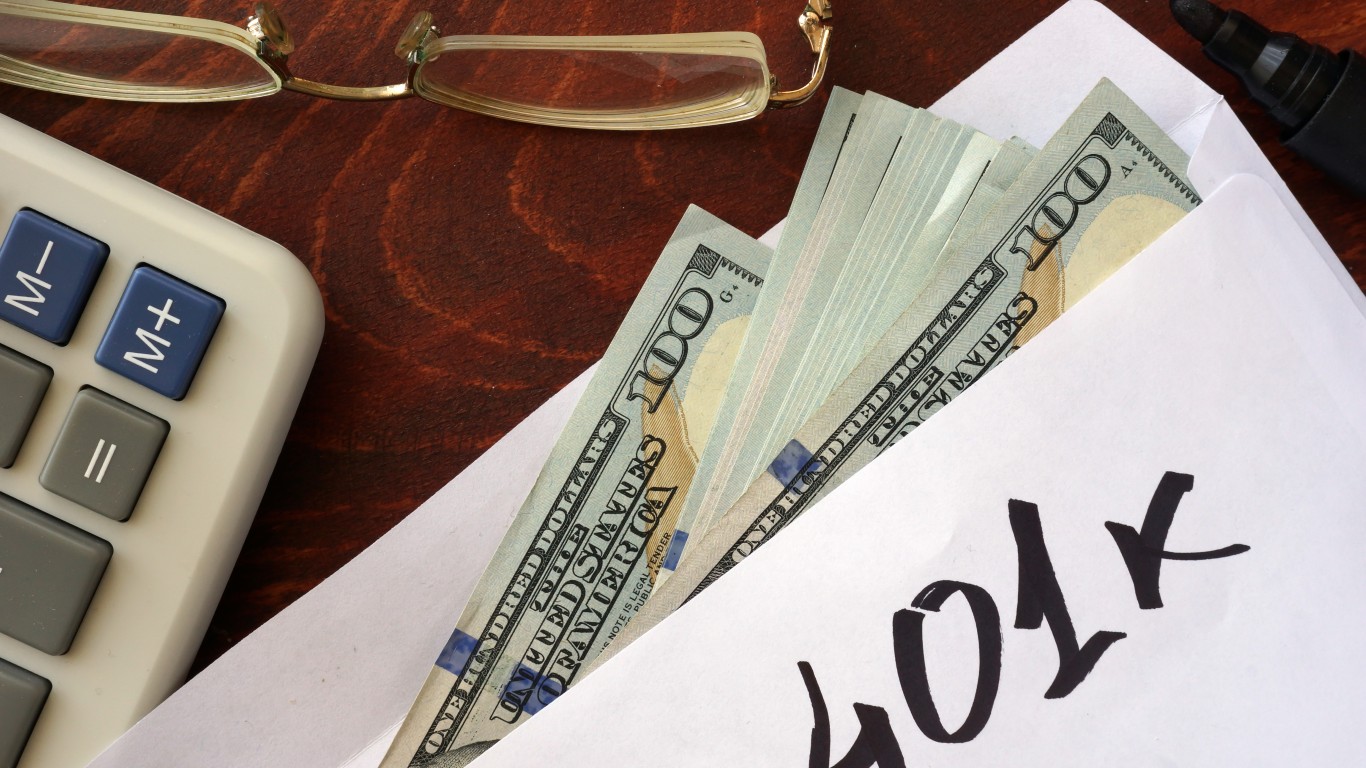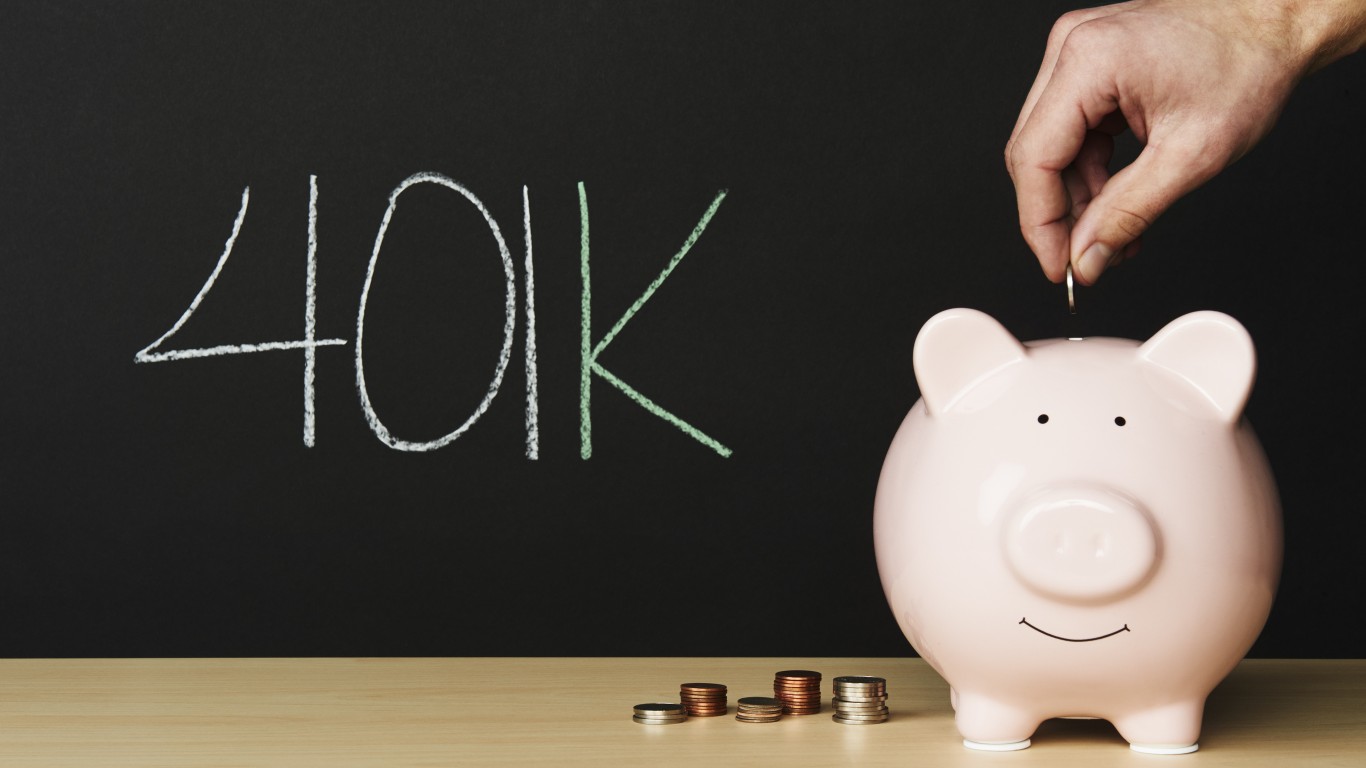Investing
Are You a 401(K) All-Star? This Is How Much You Should Have

Published:
Last Updated:

Everyone is longing for the day when they don’t have to work anymore. The days of sitting by the beach and relaxing seem as ideal as ever. People stress over having enough money when they retire to last themselves for the rest of their lives. The last thing anyone wants is to feel like they have to go back to work to survive.
There’s social security, but that only truly provides the minimum of what you need to survive. The bare minimum isn’t how you should spend your glory days, celebrating finishing work. One of the most common ways people set aside money to help them through retirement is by having a 401(K). So what exactly is a 401(K), how much should you have in it, when can you start putting money into it, and when can you start taking it out?

It’s important to understand what exactly a 401(K) is before we talk about how much you should have in it. Essentially, a 401(K) is an account where you can put money from each paycheck you get while working to help you prepare for retirement. This account is through your employer, unlike most accounts. You also get major tax benefits from putting money into this account as a way to incentivize people to do it. Some employers also will match however much you put into it. When interviewing for a job, it’s important to talk to the hiring manager about what their 401(K) contribution is. The more money you can stack away and save for the future, the better. Companies who provide a match also show how much they care about you and their employees, making them a great company to work for.

This number is different for each person. It varies based on how much you make, how much you can afford to set aside, and if your employer matches your contributions to it. As of 2023, the average 401(K) account had $107,000 in it. Now, based on your age, this is either good or bad. If you’re young and just getting started in the workforce, this is good. When you’re entering your 40s, however, you should aim to have three times your annual salary saved in your 401(K). This goes up to six times your annual salary by the time you’re 50.
The most important thing is to ensure you’re always setting money aside for yourself. Don’t get discouraged if you see this number and you don’t have this set aside. Odds are, if you don’t, it’s because you’re not making what your full potential is. Once you start to earn more money, you’ll be able to set more and more of it aside for retirement. If you are at this point, you should be proud of yourself and continue doing what you’re doing. You’ll be able to sit back and relax when you’re thinking about getting ready for retirement.

This answer depends on your employer, but you should be able to start at any point during the year. A 401(K) isn’t like healthcare, since there’s no deadline to sign up by. You also need to talk to your employer about if they have one. Since it’s provided through your employer, you can’t just get it anywhere, like a mutual fund or other type of account. You should start doing it the second you have an employer that allows you to put money into a 401(K). The earlier you do it, the more your money compounds. Even if you plan on switching jobs, you can transfer your 401(K) from your old employer to a new employer. If they don’t provide this account, you can also transfer it to a Roth IRA, which is an individual retirement account. It’s always smart to have this account, no matter where you’re at in life.

Now that you’ve made the money, it’s time to start withdrawing it. You can theoretically withdraw it whenever you want. However, because it’s supposed to be a retirement account, you’ll be given a fee until you’re 59.5. Once you hit 73, you’ll be forced to start pulling from it every month, so that the employers’ money and tax breaks aren’t wasted. You should try to start using it when you can, it’s your money and you’ve earned it over years of working. Retirement can be a scary thought. With different accounts like a 401(K), it can be less scary. Make sure you’re investing in your retirement somehow, no matter how you do it. You’ll thank yourself in the long run.
Want retirement to come a few years earlier than you’d planned? Or are you ready to retire now, but want an extra set of eyes on your finances?
Now you can speak with up to 3 financial experts in your area for FREE. By simply clicking here you can begin to match with financial professionals who can help you build your plan to retire early. And the best part? The first conversation with them is free.
Click here to match with up to 3 financial pros who would be excited to help you make financial decisions.
Thank you for reading! Have some feedback for us?
Contact the 24/7 Wall St. editorial team.